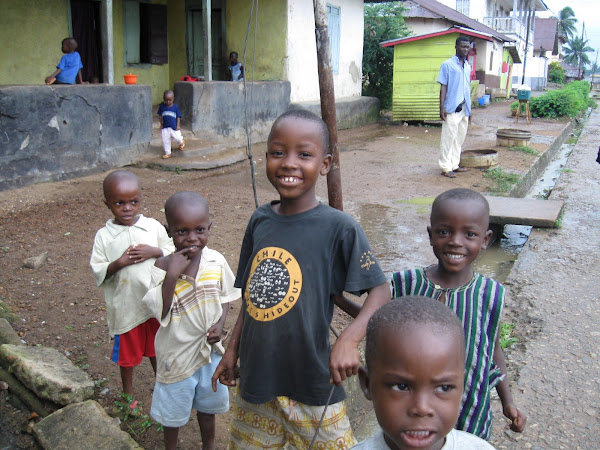Travel anywhere is difficult, as is preparing to travel. Traveling to a third world country is an added layer of difficulty it's hard to describe. Tomorrow I get to check in with the travel doctor. International travelers (especially to places not considered to be "first world" countries) get to add this step to their travel preparations. Usually this involves a consult with a doctor who specializes in the needs of Western travelers to other, more medically challenged parts of the world. The doctor researches the diseases of the area, and then selects a host of immunizations and vaccinations (I don't know the difference between these two, I just realized) to give the traveler to prevent a variety of illnesses.
For a trip to Sierra Leone, that can mean around 5 injections, an anti-malaria medication, and Cipro to be taken as a preventative for foodborne illnesses (I'm not going to get specific here - you can figure out what I'm talking about). That's the bad (ouch) news. The good news for me this time is that I don't think I have to have any/many injections. Having just been in SL in July, most of my shots are up-to-date. There's a small chance I haven't had the follow-up shot for Hep B (can't remember) which isn't really required, but is suggested.
It's amazing to me that I can just drive to the doctor's office, get a few shots, a few pills, and I'm protected from diseases that the average Sierra Leonean has no protection from. Malaria kills tens of thousands of children in Sierra Leone, for example, adding to the highest childhood mortality rate in the world. This disease is responsible for almost 40 percent of the deaths of children under the age of five. Malaria. A completely preventable disease.
I'll tell you one big thing you get by traveling to a third world country: a new apprecation for how incredibly blessed we are in this country. I know health care in America is a mess, and that something (or many things) has to change, but I'd take our current health care debate over the issues of health care my friends in Sierra Leone face any day of the week. The photo accompanying this post was taken by Alfreda Humper, a TSE photographer and resident of the Child Rescue Centre. It is of Mercy Hospital a place where lives are saved on a daily basis - from many of these diseases.
Tuesday, February 2, 2010
Subscribe to:
Post Comments (Atom)


No comments:
Post a Comment